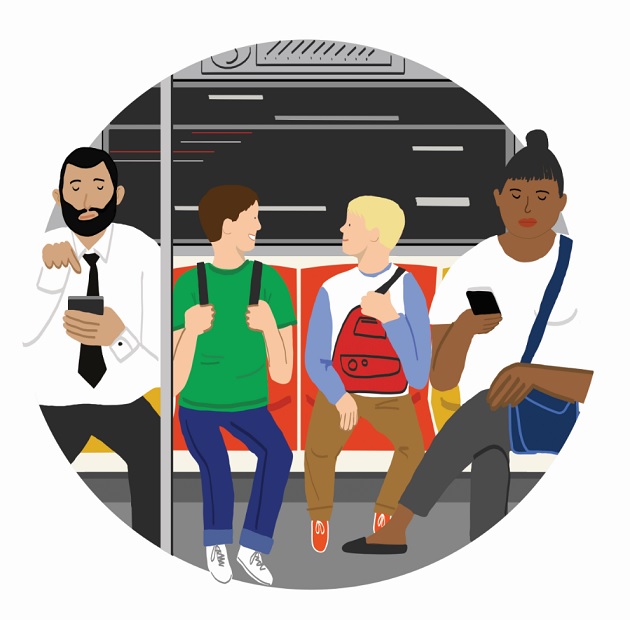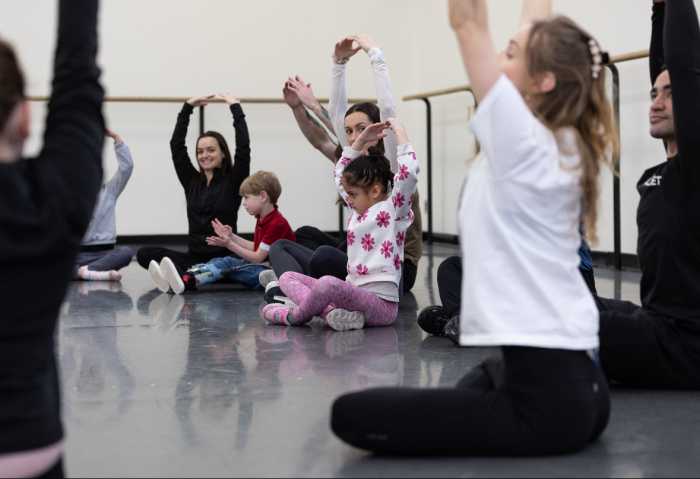
We have a Thanksgiving tradition where we tell those around the table what we appreciate about them. It could be one of my sons’ compassion or my other son’s way with accents; it could be a grandfather’s sense of humor or a grandmother’s dedication to her family.
This year I have three additions—not about people but about things I’ve always appreciated but haven’t thought to be deliberately grateful for.
No. 1: Don’t tell my husband, but first is our smallish apartment. Our family-of-four shares a two-bedroom apartment that measures maybe 1,000-square-feet. Not tiny but we could do with an extra bedroom (or two). Periodically it all gets to me, and I want a bigger place. Once when my husband was out of town, the boys and I found a place—master suite, dining area, living room, and kitchen on one end and a TV room and bedrooms for the two boys down the hall—that was beautifully renovated and 70 percent larger than we have now. It was almost affordable.
It was perfect.
Then we each independently realized that the space would change the family dynamics. We live on top of each other. There are the fights, arguments, tugs of war over LEGOs. And the boys have their issues, too. But somehow it still works.
No. 2: The boys, 11 and 14, have no iThings. Counterintuitively, perhaps that’s why No. 1 works. With nowhere to check out to, either physically or mentally, we just have to deal with each other, learn how to read the others, and be considerate.
Studies show smartphone usage can damage vision, posture, and cause hand pain—not to mention possible social dysfunction, depression, sleep deprivation, academic distraction, and inadvertent access to disturbing stuff online.
My boys remind us that 90 percent of 12- to 17-year-olds have a mobile phone and that most kids get their first smartphone at age 10. We point out that Bill Gates’ kids didn’t get smartphones till they were older and that many Silicon Valley execs nix digital crack as well. Besides, another study says that 50 percent of kids admit to being addicted to their phones.
[gravityform id=”13″ title=”false” description=”false” ajax=”true”]
Our position has yielded all kinds of benefits. Since our elder son started commuting on his own three years ago, he’s become a great navigator, self-sufficient, and confident—using nothing but a flip phone, if that. I was nervous the first time he needed two forms of transportation to get to Greenwich Village, but he mapped out the trip, printed directions, and called me when he arrived. He knew his comfort level, that he preferred buses to the subway, and planned accordingly. Then, about the time he really found his footing, he lost his phone. Then he lost another. Usually responsible and appreciative, he admitted he didn’t keep track of them because he wanted something better. That didn’t work out.
The little one now commutes, too. Like his brother, he wanted a flip phone and used it—until he didn’t. Unable to call friends with a Plan B, the boys are always on time. With no distraction, they’re alert to their surroundings. On the bus, they sit near the driver or with friends. If they get into a jam, they know to ask a mom or to step into a store to call me if something’s urgent.
There’s no one right age for someone to have a phone, and there are plenty of kids who can handle having a phone and a conversation at the same time. It’s just that ours don’t need an iPhone, as might say children of divorce, or those with health issues or those who live far from school or in rougher areas or those whose parents are away.
For a while, I was proud we were the least cool parents ever.
Then I remembered that I actually had the world’s worst parents growing up. They had ridiculous rules: 10pm weekend curfew, no drinking, no sun lamps, no dating ‘till you’re 16, stop with the Diet Cokes. I now see perhaps those weren’t such outrageous rules. But what I also see now is that, while my parents had enough money for everything I needed growing up, they didn’t have enough for everything I wanted.
And that’s No. 3. Which probably explains Nos. 1 and 2.
Hillary Chura is a Manhattan mom-of-two and a New York Family contributing writer. Follow her on Twitter @hillarychura.













